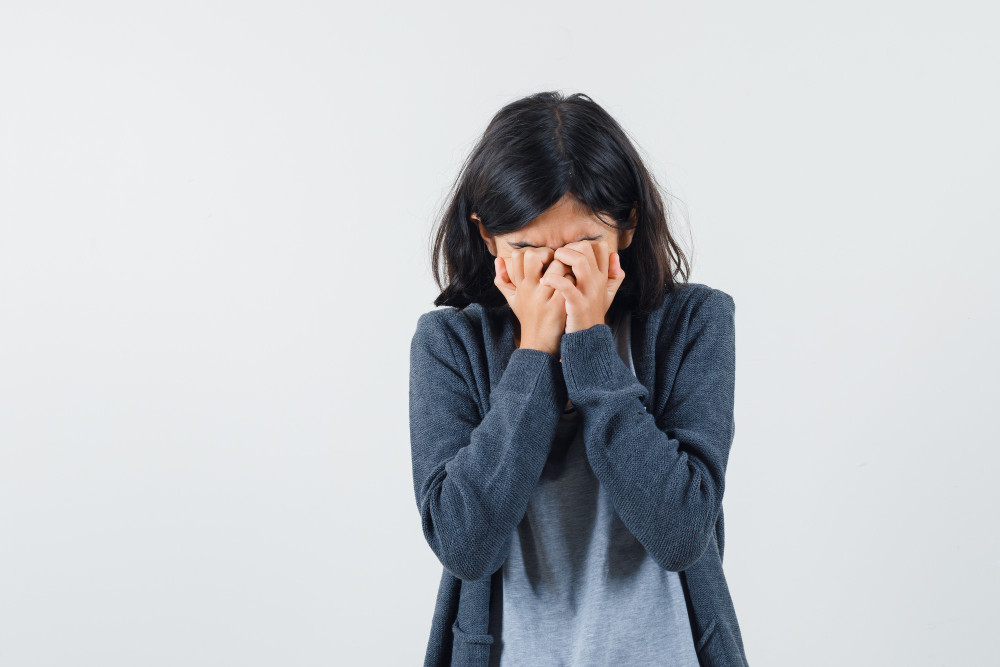Secondhand embarrassment has recently become a popular topic of discussion. Embarrassment can be defined as shame or a type of emotion associated with self-conscious feelings toward situations or actions that fail to meet social expectations.
Embarrassment makes people feel bad about their mistakes. Meanwhile, shame may be felt when witnessing others' embarrassing experiences or being perceived negatively. Secondhand embarrassment refers to embarrassment caused by the actions of others.
What is secondhand embarrassment?
Secondhand embarrassment is embarrassment caused by other people's embarrassing behaviour or situations. Situations that may cause you to feel this way include:
- Watching someone forget a speech or make an obvious error during a public performance
- Watching someone do something inappropriate in public
- Witnessing someone make an inappropriate comment that may cause embarrassment to those who see or hear it
- Watching someone commit a careless act that is considered embarrassing
Secondhand embarrassment is often linked to the empathy of the person experiencing it. Empathy is the ability to feel and understand the emotions of others, whether they are joy, sadness, happiness, fear, embarrassment, or any other situation that may arise.
The brain can simulate other people's emotional experiences and feel how they might feel. Empathy allows a person to put themselves in the shoes of another person and experience their emotions.
People who have experienced secondhand embarrassment, whether consciously or unconsciously, can imagine how they would react if they were in that situation. They may feel the same level of embarrassment as the original person who was involved in the embarrassing situation.
Read more: Know the Difference Between Introverts and Shy People
The connection between secondhand embarrassment and social anxiety
Secondhand embarrassment can occasionally be a sign of social anxiety disorder. This is a more serious issue than simply being shy. Fear and anxiety are persistent and can interfere with daily activities, self-confidence, and interpersonal relationships.
Secondhand embarrassment can cause individuals with social anxiety disorder to experience:
- Extremely uncomfortable
- Panic
- Sweaty palms
- Pounding
- Difficulty concentrating
- Feeling embarrassed
- Feeling like you want to fix other people's mistakes
- Always worry if you do something you feel is embarrassing
- Tendency to avoid social situations or reduce contact with others
Read more: How to Manage Stress During Elections
How to overcome secondhand embarrassment
When you are embarrassed by the behavior of others, you may experience unintentional stress or anxiety. You can reduce the embarrassment by being realistic about the situation. Here are some steps you can take to overcome secondhand embarrassment:
Embrace your empathy
Being shy is common, and having empathy for others is also good. Human emotions and the ability to put yourself in the shoes of others are characteristics of humanity.
However, you must eliminate excessive anxiety, which can put stress on yourself. Uncomfortable emotions can sometimes make you feel like a "bad" person, which can cause you to be more anxious than necessary. Allow your emotions to pass, and remember that you are a human being who, like everyone else, can make mistakes.
The STOP technique
According to the Cleveland Clinic, experts recommend tackling intense emotions, including shyness, with the STOP technique before they overwhelm you. STOP is an acronym consisting of:
- Stop, which means putting an end to the thoughts and emotions you are experiencing and giving yourself a break before intense emotions take over
- Take a breath, which means taking a deep breath and shifting your focus away from the embarrassment you are feeling by focusing on your breath, so that you become calmer
- Observe, that is, observe what is going on in your body and mind without self-judgment
- Proceed, which is recognizing what you need and asking yourself what the next thing you can do that will benefit you.
The technique teaches self-awareness and acceptance of emotions without attempting to change them.
Being realistic
There may be feelings of wanting to stop others' embarrassing behavior in order to avoid further damage to their reputation. These feelings are normal, and it is acceptable to try to help, but know that you are not obligated to make amends.
Finally, recognize that everyone experiences embarrassing moments in life and that these are usually brief. You and your friends will probably get over it in a few hours or days.
If you need medical advice or consultation, you can either visit a doctor or make use of the consultation features that are available in the Ai Care application by downloading the Ai Care application from the App Store or Play Store.
Looking for more information about other diseases? Click here!
- dr Hanifa Rahma
Kaytee Gillis, LCSW-BACS (2023). Second-Hand Embarrassment: What It Is & How to Stop It. Available from: https://www.choosingtherapy.com/second-hand-embarrassment/
Cleveland Clinic (2022). What Is Second-Hand Embarrassment and How Can You Stop It?. Available from: https://health.clevelandclinic.org/second-hand-embarrassment
Psychology Today. Embarrassment. Available from: https://www.psychologytoday.com/gb/basics/embarrassment
Kendra Cherry, MSEd (2023). What Is Empathy?. Available from: https://www.verywellmind.com/what-is-empathy-2795562
NHS UK (2023). Social anxiety (social phobia). Available from: https://www.nhs.uk/mental-health/conditions/social-anxiety
Marcia Purse (2022). What Is Suicidal Ideation?. Available from: https://www.verywellmind.com/suicidal-ideation-380609











